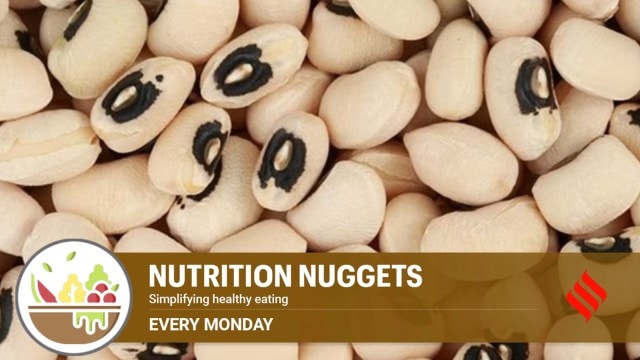What’s a weight loss superfood? Let’s spill the beans
Dr Priyanka Rohatgi, Chief Nutritionist, Apollo Hospitals, on the kind of beans that you should be taking
 Rich in soluble fibre, beans help remove low density lipoprotein (LDL) or bad cholesterol from the body. (Photo: Wikimedia Commons)
Rich in soluble fibre, beans help remove low density lipoprotein (LDL) or bad cholesterol from the body. (Photo: Wikimedia Commons)Beans are one of the most versatile, low-calorie and heart-healthy foods you can add to your diet. Consuming just one serving a day can benefit your heart health by controlling your cholesterol levels and waistline. Research has shown that replacing one serving of meat with beans per week can reduce the risk of heart disease by 10 per cent.
When it comes to weight loss, fibre-rich beans expand in the stomach to make you feel fuller faster while delivering fewer calories than many other proteins and carbs. There’s growing evidence that if you combine your proteins and fibre, it is easier to keep your body mass index (BMI) in range. Last year a study of 15,185 people found that those who ate beans regularly over a decade gained less weight and reduced their belly fat compared to those who didn’t. Since beans contain no fat, the combination of their high protein and fibre means that you might be able to lose weight faster by swapping them with other protein sources like dairy or meat.
HOW BEANS HELP MAINTAIN KEY HEALTH MARKERS
Rich in soluble fibre, beans help remove low density lipoprotein (LDL) or bad cholesterol from the body. Soluble fibre binds to bile acids that contain cholesterol and carries them out of the digestive system. This forces the body to use cholesterol in the bloodstream to make more bile, effectively lowering cholesterol levels. The fibre also reduces inflammation linked to heart disease.
Eating beans is associated with lower blood pressure levels as well. These are rich sources of potassium, magnesium and calcium which help induce vasodilation, or widening blood vessels, thereby reducing tension in blood vessel walls.
The fibre in beans also helps reduce spikes in blood sugar that can damage blood vessels over time. The combination of protein, fibre and resistant starch results in a very low glycemic index that keeps blood sugar and insulin from spiking. They delay digestion, ensuring a slow and steady release of carbohydrates and keep you fuller.
WHICH BEANS TO HAVE FOR WHAT CONDITION
· Black Beans: Contain potent antioxidants called anthocyanins associated with heart health. Provide substantial fibre, magnesium and folic acid.
· Chickpeas: Help lower LDL cholesterol and triglycerides. Rich in fibre, folate, potassium, iron, and plant-based proteins. Great for weight maintenance.
· Kidney beans: Extremely high in soluble fibre, they remove LDL cholesterol. Contain resistant starch to promote satiety.
· Lentils: These lower LDL cholesterol triglycerides and blood pressure levels. Rich in magnesium, potassium and folate for the heart.
· Navy Beans: Have very high levels of folate, which helps lower levels of homocysteine, an amino acid, which in excess damages the lining of heart vessels and accelerates clotting.
· Pinto Beans: These contain a wide array of heart-healthy minerals like magnesium, copper, zinc, potassium and B vitamins. These also help in weight loss.
So make beans, be it boiled whole or mashed, a staple of your diet. They are easy to incorporate as they can be blended with any kind of food.
Photos





- 01
- 02
- 03
- 04
- 05

























